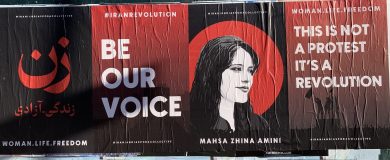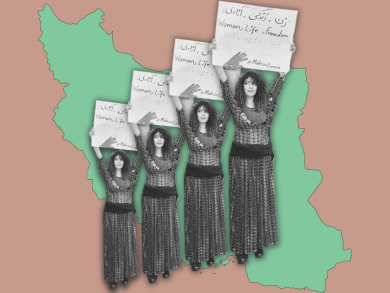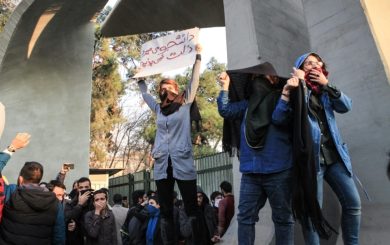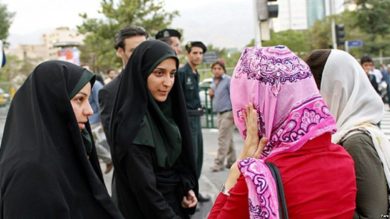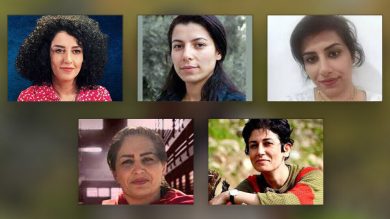International sanctions are a key tool in efforts to pressure the Islamic Revolutionary Guard Corps (IRGC) and the Iranian regime. Over the years, sanctions have aimed to restrict the IRGC’s ability to fund proxy wars, support terrorism, and repress activists. While these measures have had some success in limiting the IRGC’s operations, critics argue that sanctions often have unintended consequences, worsening economic conditions for ordinary Iranians.
This article analyzes the effectiveness of sanctions on the IRGC and explores whether they achieve their goals or disproportionately harm the civilian population.
1. The Purpose of Sanctions Against the IRGC
Sanctions targeting the IRGC are intended to:
A. Restrict Funding for Terrorism and Proxy Wars
• The IRGC supports militant groups such as Hezbollah, Hamas, and Shia militias in Iraq, Syria, and Yemen.
• Sanctions aim to cut off financial networks that fund these groups by restricting Iran’s access to international banking systems and foreign trade.
B. Pressure the Regime on Human Rights and Nuclear Issues
• The IRGC is responsible for suppressing protests, arresting activists, and torturing dissidents.
• Sanctions aim to hold IRGC leaders accountable and push the Iranian government to improve its human rights record and halt nuclear activities.
C. Demonstrate International Condemnation
Designating the IRGC and imposing sanctions signals that terrorism, regional destabilization, and repression will not be tolerated. It reinforces global solidarity with Iranian activists and human rights defenders.
2. Types of Sanctions on the IRGC
A. Economic Sanctions
• These include trade restrictions, particularly on oil exports, Iran’s main source of revenue.
• Banks and financial institutions associated with the IRGC are blacklisted, limiting access to international markets.
B. Individual Sanctions
• Key IRGC officials face asset freezes and travel bans.
• Individuals involved in human rights abuses and military operations are targeted by sanctions lists from the United States, European Union, and United Nations.
C. Arms Embargoes
• Iran is prohibited from importing or exporting military technology and weapons.
• These measures aim to limit the IRGC’s ability to arm its proxy forces.
3. Successes of Sanctions on the IRGC
Sanctions have had some success in limiting the IRGC’s operations and capabilities.
A. Disruption of Financial Networks
• Sanctions have restricted Iran’s oil revenue, reducing the funds available for the IRGC to finance proxy groups and terrorist activities.
• Several front companies used by the IRGC have been exposed and shut down.
B. Increased Costs for Military Operations
• The IRGC faces greater difficulty in smuggling weapons and maintaining foreign operations, particularly in Syria and Iraq.
• Iran’s currency devaluation and economic instability have limited the regime’s ability to fund military campaigns.
C. Symbolic Pressure
• Sanctions signal international condemnation of the IRGC’s actions and reinforce solidarity with protest movements inside Iran.
4. Negative Impact on Ordinary Iranians
Critics of sanctions argue that they often disproportionately affect civilians, exacerbating economic hardships without significantly weakening the IRGC’s grip on power.
A. Economic Hardships for the Population
• Sanctions have led to inflation, currency devaluation, and job losses, making it harder for ordinary Iranians to afford basic goods such as food and medicine.
• While humanitarian exemptions exist, banking restrictions complicate the import of essential medical supplies.
B. Strengthening of the IRGC’s Economic Control
• The IRGC has exploited sanctions to consolidate control over key industries, such as construction, telecommunications, and smuggling networks.
• Many ordinary businesses are unable to compete with IRGC-affiliated companies that dominate the economy.
C. Propaganda Tool for the Regime
• The Iranian government blames foreign powers for economic difficulties, using sanctions to justify domestic repression and silence dissent.
• State media portrays sanctions as part of a Western conspiracy to undermine Iran’s sovereignty.
5. Voices from the Ground: Activists and Citizens
A. Activist Perspectives
Many Iranian activists support targeted sanctions on the IRGC, arguing that they highlight the regime’s human rights violations and put international pressure on those responsible.
• Farhad, a student activist, says: “Sanctions on IRGC leaders are necessary, but broad economic sanctions hurt the people more than the regime.”
B. Citizens’ Experiences
Ordinary citizens often face economic difficulties as a result of sanctions, leading to widespread frustration.
• Layla, a teacher, explains: “Our lives have become harder, with rising prices and no job opportunities. Meanwhile, the IRGC keeps getting richer.”
6. Improving the Effectiveness of Sanctions
To minimize harm to civilians while maximizing pressure on the IRGC, policymakers can adopt the following strategies:
A. Focus on Targeted Sanctions
• Prioritize sanctions that directly affect IRGC leaders, military operations, and financial networks, rather than broad measures that impact the entire economy.
B. Strengthen Humanitarian Exemptions
• Ensure that medical supplies, food, and essential goods can reach the population through unrestricted channels.
• Collaborate with international organizations to monitor and facilitate the delivery of humanitarian aid.
C. Support for Civil Society
• Provide funding for independent media, human rights organizations, and digital security tools to empower activists and counter the regime’s propaganda.
7. The Role of the International Community
A. Multilateral Coordination
• Countries should coordinate sanctions enforcement to close financial loopholes and prevent sanctions evasion by the IRGC.
• Strengthening alliances through organizations like the United Nations can enhance the effectiveness of sanctions.
B. Diplomatic Pressure
• Use diplomatic channels to push for accountability and human rights reforms, making sanctions part of a broader negotiation strategy.
C. Amplifying Activist Voices
• International support for Iranian protest movements can help sustain morale and solidarity, increasing pressure on the regime.
Conclusion
Sanctions targeting the IRGC have achieved partial success by restricting funding for proxy wars and terrorist activities. However, their economic impact on ordinary Iranians raises concerns about collateral damage. To maximize effectiveness, sanctions must be targeted, humanitarian exemptions must be enforced, and civil society should receive stronger support. Global solidarity and coordinated action remain crucial in the fight for freedom and human rights in Iran.
Join Our Newsletter!
Stay informed with the latest updates, news, and ways to take action in the fight for justice and global security. Sign up now to get updates delivered straight to your inbox!

